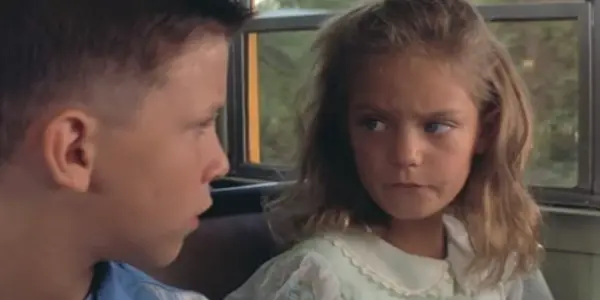While ‘manipulate’ sounds like a word with nefarious plans in mind, it’s all in good fun. Much the same way Disneyland manipulates your consumer choices by wafting vanilla scents from their nearby ice cream parlors, film score composers manipulate your emotions by wafting secret pheromones of repeating the same bit of music any time a character comes on screen or a certain motif or theme important to the movie shows itself onscreen.
With this musical key into your subconscious filmmakers can make sad moments are even sadder, epic, sweeping moments even sweep-ier. And, in the special case of Forrest Gump, days of youth early in the movie are reminisced upon in nostalgia – all through the power of the written score.
Forrest Gump gets a lot of flack for being cloying and is frequently referenced when looking at Oscar bait, and maybe it is, but not enough credit goes to the film’s composer himself, Alan Silvestri, for crafting a score that makes the most memorable moments in this movie, well, memorable.
Creating Nostalgia For Two Hours Ago
The word of the day is ‘nostalgia’. But not nostalgia as in Pixar making forgettable sequels to the movies of their heyday or indie filmmakers making movies that beat you over the head with 80’s pop culture, but nostalgia for events that happened earlier in the very movie you’re watching. The best example of this is achieved particularly in movies that take place over a long span of time, where you get to see characters grow old and change over the years.

Not only is this something achieved in Robert Zemeckis’s Oscar hit, but as well in fellow tearjerkers like Cinema Paradiso, The Theory of Everything, and Up. All of them vastly different movies, but with the same, secret common denominator that unites them: their musical score.
Though not just any score. If you really want that gut-punch to the emotional center, you need a talented film composer that knows how. It comes when you least expect it – a fun, light-hearted melody near the beginning of the movie when you see your protagonist at the peak of his or her innocence of the world; as if the music itself is unaware of the trials and tribulations that lie ahead.
And then when that same music occurs again later in the film in thematically similar moments, your subconscious is forced to start to look back on those times as if you’re looking back fondly on your own childhood that’s long gone. It’s a kind of genius that’s been employed in movies since the beginning.
In Forrest Gump, this subtle kind of trick is used in several different instances. The first, and most prominent being when young Forrest first boards the bus to school and meets Jenny for the first time. For the most part, the scene is underscored by a sad, sorrowful clarinet – but the very moment Forrest turns and meets young Jenny, a chorus of strings come in – the same chorus of strings that mark the moment Jenny runs home to Forrest in the middle of the night after his mother dies and he’s left all alone, and the same that is on full-blast at the moment of their ill-fated wedding.
It’s a theme that is filled with a bittersweet sadness that appears nearly every time Jenny does in Forrest’s life, foreshadowing from her early days of youth that the years to come aren’t going to be the happiest for either of them. A tragic sort of foreshadowing when you know these character’s fates before they do, and by far the best thing about the movie as a whole – but that’s a can of worms for another day.
With each instance of this music, and many others throughout the film, the composer and filmmaker work together to create a sensation that can really only be done in the medium of the movies – a manipulation of time, audio, and visual that is, for lack of a better, less annoying word, movie magic.
Conclusion
Overrated or not, whatever your overall consensus is, there’s no denying that Forrest Gump may very well employ one of the most powerfully moving musical scores ever put to film, courtesy of the great Alan Silvestri. So next time you watch this movie, or for the first time (which I probably spoiled for you, sorry), keep your ears open for these musical cues, and how they assign themselves to certain characters or themes, and hopefully, in the process, find that concrete evidence that you can show your friends as to what makes you cry harder at some scenes in certain movies, and not others.
What do you think? Are film scores the magician’s secret to unlocking “movie magic”? What are some of your favorite musical moments from movies? Let us know in the comments!
Does content like this matter to you?
Become a Member and support film journalism. Unlock access to all of Film Inquiry`s great articles. Join a community of like-minded readers who are passionate about cinema - get access to our private members Network, give back to independent filmmakers, and more.